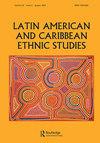On choosing sides: ethical anthropology and inter-indigenous conflict in Alto Beni, Bolivia
IF 0.6
Q4 ETHNIC STUDIES
引用次数: 1
Abstract
ABSTRACT Ethnographic fieldwork necessarily involves making choices about which communities to work with, sympathize with, and support. This article explores the moral or ethical frameworks through which anthropologists make those choices. While in some cases the moral, ethical, and political grounds on which to make those decisions may be clear, in many they are not. I focus on the Alto Beni region of Bolivia, in which two groups that could reasonably be described as indigenous are engaged in a conflict over access to land. Both positions could be framed in terms of a reparation for historical injustice against indigenous people, though each framing depends on a different conception of indigeneity. The ambiguity produced in this context exposes the subjective nature of the process by which anthropologists choose the communities with whom they work. I conclude by suggesting that anthropologists make these choices based on emotional, affective, or aesthetic grounds.选边站队:伦理人类学与玻利维亚上贝尼的土著冲突
民族志田野调查必然涉及选择与哪些社区合作、同情和支持哪些社区。本文探讨了人类学家做出这些选择的道德或伦理框架。虽然在某些情况下,做出这些决定的道德、伦理和政治依据可能是明确的,但在许多情况下却并非如此。我把重点放在玻利维亚的上贝尼地区,在那里,两个可以被合理地称为土著的群体因土地使用权而发生冲突。这两种立场都可以从补偿历史上对土著人民的不公正的角度出发,尽管每一种立场都取决于对土著的不同概念。在这种情况下产生的模糊性暴露了人类学家选择与之合作的社区的过程的主观性。最后,我建议人类学家根据情感、情感或审美的理由做出这些选择。
本文章由计算机程序翻译,如有差异,请以英文原文为准。
求助全文
约1分钟内获得全文
求助全文
来源期刊

Latin American and Caribbean Ethnic Studies
Social Sciences-Cultural Studies
CiteScore
1.30
自引率
16.70%
发文量
22
 求助内容:
求助内容: 应助结果提醒方式:
应助结果提醒方式:


